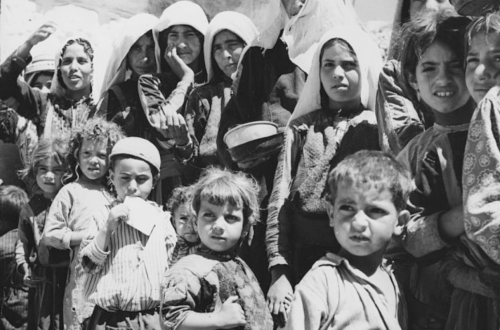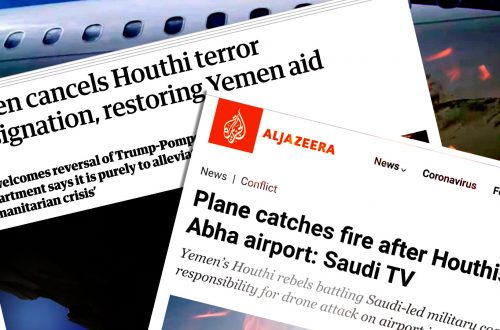This is a cross-post by Just Journalism. Shiraz Maher’s dispatch for Standpoint Magazine is forthcoming in the March edition.
************
Shiraz Maher is well poised to appreciate the revolution in Egypt as both a journalist and a student of political Islam. In the early aughts, he served as the regional officer in England for Hizb ut-Tahrir, the radical Islamist group committed to restoring the caliphate. Then came the 7/7 Tube bombings and Maher’s break with his radical past. He has since established himself in the UK as that rarest of experts on an ideological movement: an ex-insider.
Maher reports regularly for Standpoint magazine, where he also co-authors with Alexander Meleagrou-Hitchens a popular blog that monitors and comments on every shade of Islamist extremism. He returned earlier this week from the vertiginous streets of Cairo where he witnessed anti-Mubarak protestors and pro-Mubarak regime agents square off in one of the only violent episodes of what has so far been a series of peaceful, democratic demonstrations.
Just Journalism Executive Director Michael Weiss recently spoke with Maher about Egypt, the Muslim Brotherhood and the deliberate targeting of journalists.
Michael Weiss: You just returned from Cairo. What were you impressions of the protestors? Is this a revolution that the West ought to be worried about or embrace unequivocally?
Shiraz Maher: There are very few things that should be embraced unequivocally. The Cairo revolt merits close inspection but unfortunately some sections of the commentariat have been too quick to rush to judgment. Quite often, they have done so without going anywhere near Egypt. After spending a week talking to protesters in Tahrir Square and many of the main opposition leaders, my impression is that the West has squandered an amazing opportunity here. This movement emerged as a ‘leaderless revolt’ organised through social networking sites and mobile phones. It started with the youth, but has received broad support from all sections of Egyptian society.
I saw everyone you could think of in the Square: old men and women, peasants from the countryside, gilded urban youth, members of the upwardly mobile middle classes. One man even brought his newborn to Tahrir Square proclaiming her ‘the youngest revolutionary’ (she was one month old). You only had to speak with these guys to realise that they are not seeking an Islamist revolt. This is not 1979 or an attempt to turn Cairo into Kabul. The language of the protesters is framed through the idioms of ‘freedom’, ‘liberty’, and ‘human rights’. These people want their dignity back. Lots of Christians attended the protests too, and people were very alive to the fact that the West fears an Islamist revolt. They went out of their way to make it clear that this is a secular movement. Western leaders, and Obama in particular, have made a disastrous miscalculation by not supporting these protesters with more vigour.
MW: Journalists have been detained, beaten, threatened and dragged through the streets by pro-Mubarak forces. Any ominous anecdotes of your own to report?
SM: The atmosphere for journalists was fine until Wednesday when the pro-Mubarak mob turned up. Until then we were able to work freely. The protesters were very good to us, they were keen to talk and would offer us food and water. The atmosphere felt like a carnival at times. Of course there were all the usual dangers of reporting from an environment as volatile as the one in Cairo, where vigilante gangs were opening fire at random and seeking out targets for theft, but that was never too bad.
On Sunday I was caught up in two gunfights, but was able to run back to the relative safety of the hotel without too much trouble. The following day I travelled with a Venezuelan TV crew to Shubra, an impoverished area just north of downtown Cairo. A gang of about twenty, I can only assume they were criminals, surrounded the car at some traffic lights and tried to go for our equipment. Luckily the driver threatened to run them over and got us out of there. Even then, the situation didn’t feel too unsafe because journalists were not specifically the target.
Once the pro-Mubarak supporters turned up on Wednesday things turned very bad, very quickly. They had orders to find the foreign press and attack them. I saw scores of foreign journalists being set upon and beaten. Often they were just kicked and punched and had their cameras destroyed. Others were less fortunate and were hit with sticks, poles or, in some cases, with knives. Sadly, one Greek journalist was killed after being stabbed.
The Army was slow to intervene during these incidents, if they intervened at all. When they did, they would disperse the crowd but then turned over the journalists to Egypt’s much feared secret police. I saw that happen with two journalists from the Washington Post. I watched from the hotel balcony as they tried to sprint back but were unable to make it. The mob beat them and then the Army arrested them. I saw them marched under the 6 October bridge to a military checkpoint, after which I don’t know what happened to them. It’s safe to say, the panic set in by that stage. Who was going to protect us? The mob was out to kill us and the police wanted to arrest us.
There were lots of other hairy moments too, for example, the Army turned up at my room late one evening with about ten soldiers, all of them heavily armed. They were upset with us filming from the balcony so we were ordered to stop. Later they confiscated some of the cameras. Most of the journalists were in the same hotel and by late afternoon on Wednesday the mood there was extremely tense. Even seasoned correspondents looked petrified. Almost everyone was carrying some kind of injury. It was an awful 48 hours from that point.
MW: The Muslim Brotherhood was quiet at first. But in recent days their representatives have been increasingly outspoken on everything from their political intentions in any post-Mubarak democracy, to the fate of the Israeli-Egyptian peace treaty. At the same time, one has heard and read numerous commentaries that depict the Brotherhood as either politically marginal, bumbling, or benign. You’ve a background in Islamist movements, not to put too fine a point to it, and so I’m wondering what you make of the Ikwhan and their real threat level?
SM: The Ikhwan are a force in Egypt, of that there can be no doubt. I don’t buy the argument that the Ikhwan is changing or that it can somehow be tempered as a movement. Institutionally it remains as reactionary and extreme as it always has been.
With regard to the current troubles in Cairo however, the Ikhwan were nowhere to be seen. Their presence on the ground was small and the main protesters I spoke to were keen to distance themselves from the movement. Yes, the Ikhwan is a part of Egyptian political life, but it is not on the brink of power. It is not even the most popular party among ordinary Egyptians. Mubarak has sold the West a crock by saying if he goes then the Brotherhood is next. I don’t buy that argument and I think we run the risk of turning this into a self-fulfilling prophecy by not supporting the protesters on the ground. They’re already asking why they’re not being supported by the West. If their hope gives way to anger, then that is precisely what Islamists want. It helps them sell the lie that the West is out to undermine Islam and Muslims, or that the West only selectively applies its principles.
So, to answer your question, the Brotherhood might be marginal but it is neither bumbling nor benign. It is an astute movement watching [the West] betray the legitimate sentiments of young, ordinary Egyptians. That is what the Ikhwan is waiting for so it can pounce. A marginal movement could very suddenly find itself in the mainstream. I have good evidence from Alexandria that this is already starting to happen, and it is worth bearing in mind that the Brotherhood is much better organised there than in Cairo.
MW: One aspect of the analysis on the Brotherhood that I’ve not seen addressed yet is their support in the cities versus the countryside. We tend to forget that these protests are taking place in metropolitan centres in Egypt, but not in the rural areas. In Iran in 2009, even though the presidential election was rigged, there seems to be some consensus that Mahmoud Ahmadinejad did well among the rural poor. I’m curious to whether or not the comparable areas in Egypt are more or less favorably disposed to Islamism – or to Mubarak, for that matter.
SM: The rural poor tend to support Mubarak. In fact, it seems most Egyptians simply want stability. It was interesting to see how the momentum turned against the Tahrir Square protesters following Mubarak’s statement on Tuesday night. For us looking in, it is hard to appreciate how much of a masterstroke it was. In that speech I thought Mubarak came across as arrogant and defiant, but he struck an emotional resonance with Egyptians. They almost felt sorry for him. In the meantime they are suffering badly. Egypt has plunged into crisis. The shops are out of food, banks are closed, ATMs have no money, and fuel supplies are low; ordinary life has ground to a complete halt. Over a million tourists also fled the country, battering an already struggling economy.
When the extreme violence broke out on Wednesday most Egyptians just had enough. They regard the protesters as having won because Mubarak pledged to stand down later this year. Now they want a return to normalcy. That’s what the overwhelming view among the rural poor is, and an increasing number of Egyptian city-dwellers are starting to share it. The Brotherhood’s main stronghold is in Alexandria among young adult males. In Alexandria they are making their presence more felt than in other parts of Egypt.
MW: The Obama administration has demanded that Mubarak leave and make way for a transitional government, though this would inevitably be run by his hastily appointed Vice President Omar Suleiman with some degree of military oversight. Will this outcome, even if temporary, satisfy the demonstrators?
SM: No. The protesters in Tahrir Square are furious with the suggestion. Interestingly, ever since Omar Suleiman was appointed Vice President, some protesters began naming him in their chants too. Until then, the only person they named was Mubarak. On Tuesday, when the ‘million man march’ took place, the names of all the cabinet were read followed by chants of ‘out’. This was before Mubarak offered his compromise.
With regards to the compromise, there are two things you have to bear in mind. The first is that these protesters are not simply calling for the removal of Mubarak, they want everyone out and to start again. The second is much more personal. The hardcore protesters, the few thousand who have largely orchestrated this movement, know that during the interim period they will be arrested, tortured and even killed by Mubarak’s brutal state apparatus. This will be Mubarak’s final revenge. His ship is sinking, but he wants to make sure he takes as many people down with him as possible. The protesters in Tahrir Square know this very well, so their only option is to remain there. Many told me they would sooner die there than leave with Mubarak still in power. I fear, for many, that is precisely what it will come to.

